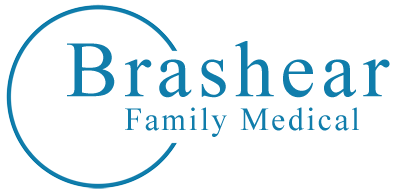Colorectal cancer is a cancer that begins in the colon or the rectum. Age is a common risk factor for colorectal cancer. Therefore, we recommend regular colorectal cancer screenings for anyone over the age 50.
Colorectal Cancer Screenings
Colorectal cancer screenings can find precancerous polyps, which are abnormal growths in the colon or rectum. Cancer screening for colorectal cancer is crucial because when found early, it is highly treatable.
In addition, early stages of colorectal cancer typically present no symptoms, which tend to appear as the cancer progresses.
What is a Colonoscopy?
A colonoscopy is the best screening test available for colorectal cancer. The following are a few things to know about this test:
- During a colonoscopy, your doctor will examine the lining of your entire colon to check for polyps or tumors. If we find any polyps, we can remove them immediately.
- On the day of the colonoscopy, you will receive medication to help you relax. Most individuals fall asleep and don’t remember much about the test when they wake up.
- Your doctor here at Brashear Family Medical will perform a colonoscopy. We do this by inserting a long, thin, flexible tube called a colonoscope into your colon through your rectum. The tube contains a tiny video camera and light at the end that sends images to a video monitor.
- Before the procedure, your doctor will give you instructions on what to eat and how to empty your bowel.
- Starting at the age of 50, we recommend both men and women receive a colonoscopy regularly. Individuals at increased risk of colorectal cancer may start early, depending on your doctor’s instructions. In addition, your doctor will tell you in how many years you will need another colonoscopy.
Other Colorectal Cancer Screening Tests Available
We can also perform one of the following screening tests for colorectal cancer:
- Sigmoidoscopy
- Double contrast barium enema
- Virtual colonoscopy (CT colonoscopy)
- Fecal occult blood test
- DNA stool tests
Keep in mind, these tests are not as thorough as a colonoscopy. If we believe there’s polyps or tumors based on these tests, you will still need to have colonoscopy.
Risk Factors for Colorectal Cancer
The following are some common risk factors for colorectal cancer:
- Age. Colorectal cancer is more common in individuals over the age of 50.
- Personal and family history. Individuals who have a parent, sibling or child with colorectal cancer are at a higher risk of developing it themselves. This is particularly true if the family member was diagnosed before the age of 60. Those who have had colorectal cancer are also at higher risk of another colorectal cancer.
- Race. African-American men and women are at higher risk of colorectal cancer. However, the reasons for this are not fully understood.
- Jews of eastern European descent. About 6% of American Jews who are of eastern European descent have DNA changes that increase their risk.
- Inflammatory bowl disease (IBD). IBD includes ulcerative colitis and Chron’s disease and puts you at higher risk of developing colorectal cancer.
- Lifestyle. Being overweight, having an inactive lifestyle, a diet high in red meat and processed meat, smoking and heavy alcohol use can increase your risk of colorectal cancer.
Symptoms of Colorectal Cancer
The following are symptoms of colorectal cancer:
- A change in bowel habits that lasts more than a few weeks
- A feeling of having a to have a bowel movement that does not go away even after doing so
- Rectal bleeding, dark stools or blood in the stool
- Stomach discomfort, including bloating or steady abdominal pain
- Unexplained weakness or fatige
- Unexplained weight loss
Schedule your colorectal cancer screening with our doctors here at Brashear Family Medical Center with the link below!

